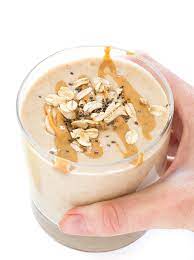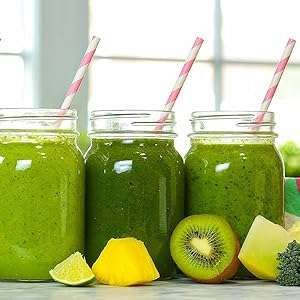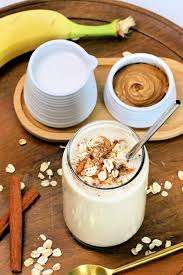Smoothies have long been touted as the go-to solution for quick, easy, and nutritious weight loss meals.
I mean, let’s face it, who would not love the idea of sipping on a refreshing drink packed with fruits, veggies, and other “healthy” ingredients, all while shedding pounds?
I don’t know about you but I certainly would not miss out on lip-smacking smoothies that have the uncanny ability to melt my belly fat.
But here is where it gets tricky—could your so-called “healthy” smoothie actually be sabotaging your weight loss goals and causing you to gain weight instead?
I found this out the hard way.
In this article, I will walk you through my personal experience with smoothies, and share what I learned along the way.
We will explore the science behind smoothies, dissect common mistakes, and answer the burning question:
Are healthy smoothie recipes for weight loss actually making you gain weight?
Article Index:
- My Smoothie Journey: From Weight Loss Dream to Weight Gain Nightmare
- The Science Behind Smoothies and Weight Loss
- Common Mistakes People Make with Healthy Smoothie Recipes for Weight Loss
- Are You Drinking Calories Without Realizing It?
- How Hidden Sugars in Smoothies Can Derail Your Progress
- Fat Burning Smoothies for Weight Loss: Myth or Reality?
- FAQs on Healthy Smoothie Recipes and Weight Gain
- Conclusion: Are Smoothies Helping or Hurting Your Weight Loss?
My Smoothie Journey: From Weight Loss Dream to Weight Gain Nightmare
Like many of us, I fell for the allure of healthy smoothie recipes for weight loss. I loaded up on fruits, greens, protein powder, and almond butter, thinking I was on the fast track to shedding those extra pounds.
The first few weeks went great—I felt more energized, and my meals felt lighter. But after a month, I noticed something strange: my weight was not budging. In fact, I had gained a few pounds.
What was I doing wrong?
After all, I was drinking smoothies packed with healthy ingredients. That is when I started digging deeper, and what I found shocked me.
My smoothie obsession was not exactly helping me slim down.
The Science Behind Smoothies and Weight Loss
Smoothies are often marketed as a healthy option because they’re easy to make, portable, and can be packed with nutrients. But they are also incredibly easy to overconsume, especially when it comes to calories.
Weight loss boils down to a simple equation: calories in versus calories out. If you are consuming more calories than you’re burning, you will gain weight—even if those calories come from “healthy” ingredients.
A study published in The American Journal of Clinical Nutrition explains how liquid calories can be deceiving because our brains do not register them in the same way as solid foods.
When you eat whole fruits or vegetables, the fiber helps you feel full and signals to your brain that you have eaten enough.
In contrast, when these ingredients are blended, it becomes easier to consume more without feeling satisfied.
Common Mistakes People Make with Healthy Smoothie Recipes for Weight Loss
Smoothies can be a game-changer when it comes to losing weight—quick to make, packed with nutrients, and easy to customize. But here is the catch: not all smoothies are created equal.
Through my own bumpy smoothie journey (which included one kale disaster and several peanut butter overindulgences), I realized a few critical mistakes that can sabotage even the most well-intentioned blender warrior.
Fruit Frenzy Overload:
Yes, fruits are healthy, but moderation is key. Piling on bananas, mangoes, pineapples, and berries in one go turns your smoothie into a sugary avalanche. Even natural sugars can raise blood glucose and crash energy levels later.
A good rule of thumb? Stick to one cup of fruit per smoothie, and balance it out with vegetables like spinach or zucchini for fiber and volume.
The Fat Trap:
Coconut oil, almond butter, flax seeds—they are all nutritional powerhouses. But one heaping spoonful too many, and your 300-calorie smoothie suddenly becomes a 600-calorie dessert.
Use healthy fats mindfully. Half a tablespoon of nut butter or a teaspoon of chia seeds is often plenty to get the benefits without the bloat.
Missing the Protein Punch:
This one’s a silent killer for weight loss goals. Without protein, your smoothie might taste great but will leave you hungry an hour later. Cue the vending machine run.
Add a scoop of protein powder, Greek yogurt, tofu, or even soft-boiled egg whites (yes, really!) to make it more filling and balanced.
Smoothies can be your best ally in weight loss—but only when built with the right ratios. Think of it like smoothie alchemy: a mix of smart carbs, controlled fats, and muscle-friendly protein.
Get the formula right, and you shall be blending your way to your goals.
Are You Drinking Calories Without Realizing It?
It turns out that when I switched to smoothies, I was unintentionally consuming way more calories than I would in a regular meal.
Why?
Because smoothies are easy to drink, and my body was not registering them as a full meal.
A common pitfall with smoothie drinks for weight loss is that they do not always have the “staying power” of solid meals.
A smoothie that packs 500 calories might not feel like it, and you may find yourself hungry again soon after.
Scientific studies have shown that liquid calories are generally less satiating than solid ones.
As per leanandfit.info our bodies do not recognize them the same way, which means we are less likely to compensate by eating less later. This often leads to an overall increase in daily calorie intake.
Research comparing solid meals to liquid ones consistently finds that people feel fuller and more satisfied after chewing their food.
Smoothies, even when calorie-matched to solid food, tend to provide less sensory feedback.
This results in lower levels of satiety hormones and a weaker feeling of fullness.
The thickness of the drink also matters. Studies have shown that people feel fuller after consuming thicker smoothies, even when the calories are identical.
This “phantom fullness” can trick the brain into thinking it is had more food, which might help with appetite control. Mindless eating habits from boredom are done away with by consuming smoothies.
Interestingly, even smoothies with added fiber do not always match the satiety power of whole fruits or vegetables.
This is likely because chewing triggers stronger digestive signals, and solid foods spend more time in the stomach, slowing down digestion and hunger.
So while that smoothie might seem innocent, if you are not paying attention to ingredients and portion sizes, you could easily be drinking hundreds of extra calories—and still feeling hungry an hour later.
This is why following calorie restriction for weight loss should never be avoided.
How Hidden Sugars in Smoothies Can Derail Your Progress?
Smoothies can quickly become sugar-laden if you are not careful.
Many healthy smoothie recipes for weight loss rely heavily on fruit, which, while natural, still contains sugars.
Add in sweetened yogurt, honey, or store-bought juice, and you have turned your fat losing smoothies into sugar bombs.
The Harvard T.H. Chan School of Public Health warns that excessive sugar consumption, even from natural sources, can spike insulin levels and lead to fat storage, particularly around the midsection.
This is especially concerning for anyone looking to lose weight.
When I took a closer look at my smoothies, I realized that what I thought was healthy (a banana here, a handful of berries there) was adding up to more sugar than I realized.
Fat Burning Smoothies for Weight Loss: Myth or Reality?
The internet is full of bold claims about fat-burning smoothies for weight loss. But can a simple blend actually melt away fat? Let’s dive into the facts and separate reality from hype.
The Myth of the Magical Smoothie:
While smoothies can be a nutritious addition to your diet, no drink alone can “burn fat.” Weight loss comes down to creating a calorie deficit, meaning you burn more calories than you consume. Certain ingredients may support metabolism, but sipping on a smoothie won’t replace a balanced diet and an active lifestyle.
Ingredients That Support Metabolism:
Although no single ingredient can directly trigger fat loss, some can help your body optimize metabolic processes:
- Green Tea – Rich in antioxidants like epigallocatechin gallate (EGCG), green tea has been shown to slightly boost metabolism. As per Simple Green Smoothies, using chilled green tea extract as a smoothie base can provide these benefits.
- Ginger – Known for its anti-inflammatory properties, ginger has been linked to reduced body weight. According to Eat This, Not That, adding fresh ginger to your smoothie can help regulate blood sugar and improve digestion.
- Protein – Protein increases satiety, helping you feel full longer. Men’s Health highlights that adding Greek yogurt or protein powder can make your smoothie more filling and prevent overeating.
How to Make a Balanced Smoothie?
To make your smoothie a useful weight-loss tool, follow these tips:
- Use Whole, Nutrient-Dense Ingredients – Incorporate leafy greens, nuts, seeds, and healthy fats for a nutrient-rich blend, as recommended by Healthline.
- Watch the Sugars – Many smoothies become sugar-laden due to excessive fruit or added sweeteners. The Pritikin Longevity Center warns that too much sugar can spike insulin levels and counteract weight loss efforts.
- Control Portions – Even healthy ingredients add up in calories. Men’s Health suggests keeping smoothies around 250-350 calories to avoid accidental overconsumption.
My Personal Experience:
When I switched to nutrient-dense, lower-calorie smoothies, I noticed better results. Blending leafy greens, a scoop of protein powder, and a small amount of fruit kept me full without excessive sugar. Instead of relying on smoothies to “burn fat,” I used them as part of a well-balanced, calorie-controlled diet.
The Bottom Line:
Smoothies can be a convenient, nutritious part of a healthy lifestyle, but they are not magic weight-loss drinks. According to Harvard T.H. Chan School of Public Health, the key to long-term weight loss is a combination of healthy eating habits, portion control, and regular physical activity. So, enjoy your smoothies, but don’t expect them to do all the heavy lifting on their own!
FAQs on Healthy Smoothie Recipes and Weight Gain
Q-1: Why can a “clean” smoothie out-calorie my regular breakfast?
A-1: Health halos hide energy bombs: 2 bananas + dates + honey + nut butter + coconut water can exceed 600–800 kcal—more than eggs on toast. Liquids also bypass chewing brakes, so fullness fades sooner. Fix it: cap fruit at 1–1½ cups, choose water/unsweetened milk, limit fat add-ins to 1 tablespoon total, and keep most smoothies in the 12–16 oz range.
Q-2: Does blending fiber still curb appetite—or does the blender blunt it?
A-2: Fiber isn’t destroyed, but particle size shrinks. Smaller particles empty faster from the stomach and lead to quicker carb absorption—especially in fruit-only blends. You feel full now but hungry again soon. Fix it: build “PFF” structure—Protein (20–30 g), Fat (5–10 g), and visible Fiber (chia/flax, oats, leafy greens). Prefer whole fruit over juice, and add a spoonable element (e.g., ¼ cup yogurt) to slow sips.
Q-3: Are smoothie bowls better because I eat them with a spoon?
A-3: Not if toppings turn them into sundaes. Granola, honey, cacao nibs, and extra nut butter add stealth calories fast. And “thick = healthy” is misleading; thickness doesn’t equal satiety if protein is low. Fix it: limit toppings to two (one crunchy fiber, one fruit), weigh granola, and ensure the base delivers ≥20 g protein and ≥8 g fiber.
Q-4: Could my “post-workout” smoothie erase the workout’s deficit?
A-4: Yes. A hard session can boost appetite and justify extras—agave, collagen, MCT, plus a large fruit base. That can easily exceed calories burned, netting a surplus. Fix it: target 20–30 g protein + 25–40 g carbs + pinch of salt after training, then return to routine meals. If fat loss is the goal, keep recovery smoothies modest and skip sugary add-ons.
Q-5: Are café “green” smoothies safer than homemade?
A-5: Often they’re larger (24–32 oz), use sweetened yogurt/juices, and hide syrups—pushing beyond 500 kcal. “Green” refers to color, not calories. Fix it: ask for unsweetened base, half fruit/double greens, and a plain protein add-in. If nutrition info isn’t clear, order the smallest size, skip syrups, and add a side of chew (an apple, edamame) to extend fullness.
Quick template to stop silent gain: 12–16 oz; 1 cup fruit; 1 scoop protein; 1 tbsp seed or nut; 1–2 cups greens; water/unsweetened milk. Sip without a straw, and pause halfway—if still hungry in 10 minutes, finish it; if not, save the rest.

Are Smoothies Helping or Hurting Your Weight Loss?
So, are healthy smoothie recipes for weight loss actually making you gain weight?
The answer depends on how you are making them. If your smoothies are packed with high-calorie, sugary ingredients, they could be hindering your progress rather than helping it.
Through my own trial and error, I learned that successful weight loss with smoothies comes down to being mindful of what is in your drink.
Swap out calorie-dense ingredients for more vegetables, add a source of protein, and keep fruit and fats in moderation.
While smoothies and weight loss can go hand-in-hand, it is all about balance.
As per leanandfit.info, “When done right, smoothies can be a convenient, nutrient-packed part of your weight loss journey”.
But do not fall into the trap of thinking that just because it is in a glass and blended, it is automatically healthy.
References:

